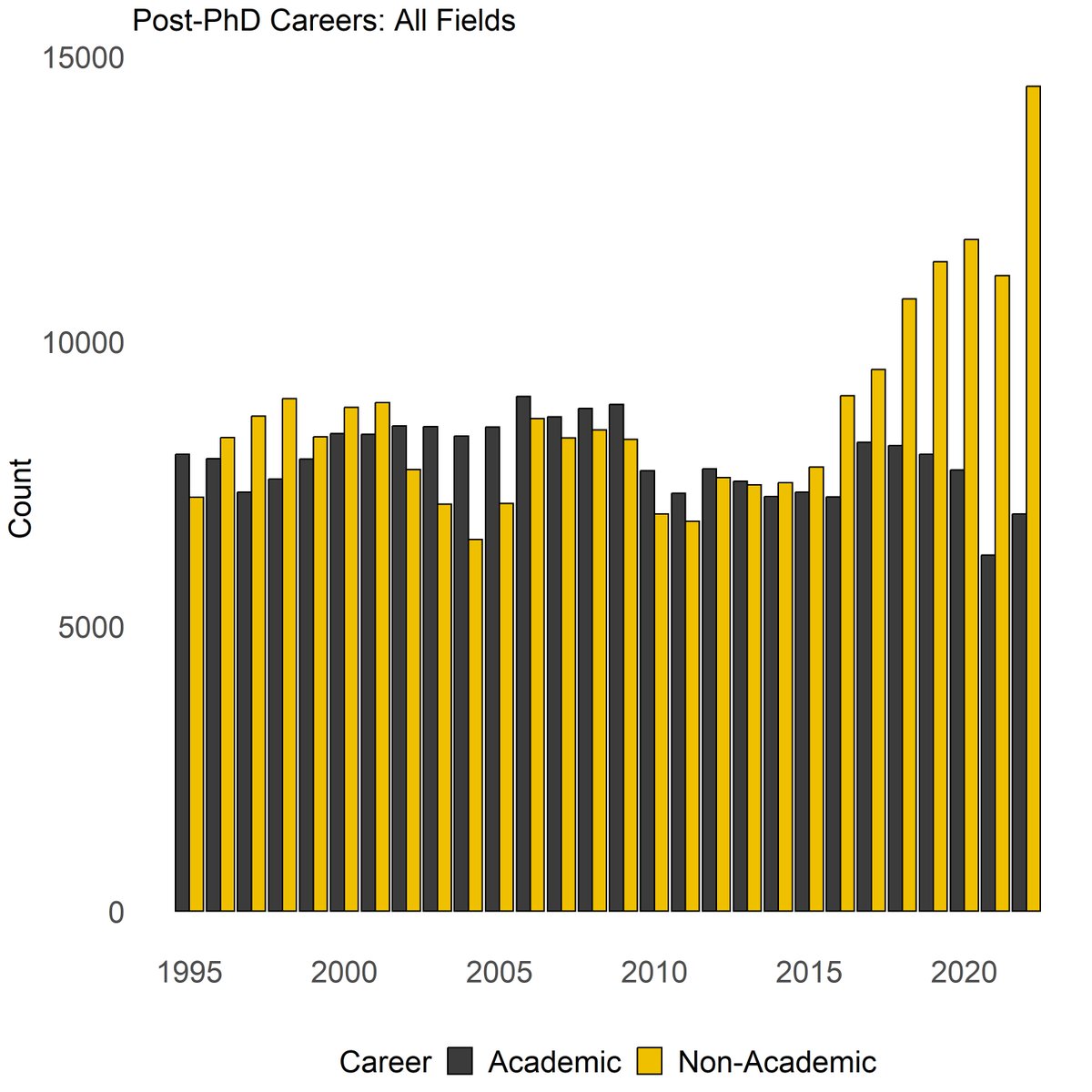Curious about careers outside of academia? Feeling sad, scared, & lost? Have no idea where to start?
I was there! Thankfully, I put my #firstgen skills to work & found the info I needed.
Here are my fav resources that helped me move on from academia & secure an alt-ac job! 1/
I was there! Thankfully, I put my #firstgen skills to work & found the info I needed.
Here are my fav resources that helped me move on from academia & secure an alt-ac job! 1/
@BeyondProf has so many resources. I've attended their webinars, gone to their career conference, & read so many articles on their website.
They recommend spending the first months of your job search just exploring - what careers interest you most?
beyondprof.com/upcoming-event… 2/
They recommend spending the first months of your job search just exploring - what careers interest you most?
beyondprof.com/upcoming-event… 2/
@ProfessorIsIn has a great book, podcast, and blog. There is also a facebook support group for those looking for careers outside academia, in case you need some mutual support (there are 21k members currently - you are not alone!)
facebook.com/groups/profess… 3/
facebook.com/groups/profess… 3/
@cheekyscience has SO MANY great resources. I actually discovered them pretty late in my job search process, but wow I wish I had discovered them sooner!
cheekyscientist.com 4/
cheekyscientist.com 4/
@pro_phound is a *brand new* org started by the former post-doctoral career development officer at @UWMadison. Andrew is great, and there are a lot of free resources here too!
pro-phound.com 5/
pro-phound.com 5/
@clcaterine wrote a fabulous book about leaving academia. His interview on the @ProfessorIsIn podcast (theprofessorisin.com/podcast/ep-228…) gave me a lot of confidence to leave academia.
press.princeton.edu/books/hardcove… 6/
press.princeton.edu/books/hardcove… 6/
Want to follow some twitter folx who have recently made the transition to alt-ac? Follow @HelanaDarwin @njoybetz @FromPhDtoLife @science_latte @theboldphd & @ashleyruba (me!) for regular advice.
Anything/anyone I missed? Post it in the comments!
Anything/anyone I missed? Post it in the comments!
• • •
Missing some Tweet in this thread? You can try to
force a refresh









